BEIRUT (AFP) – One of the Palestinian militant groups which retains bases in Lebanon said that it would only discuss laying down its weapons once the country’s 380,000 Palestinian refugees have been accorded basic civic rights. The Popular Front for the Liberation of Palestine – General Command (PFLP-GC) — a hardline pro-Syrian group — demanded that a week-long national dialogue conference under way in Beirut tackle the plight of the refugees and not simply the question of militant weapons.
"The Palestinian question in Lebanon should not be discussed exclusively from the security point of view. We’re asking the dialogue conference … to decide on concrete steps as far as the humanitarian, civic and political rights of the Palestinians," PFLP-GC spokesman Anwar Rajab told reporters."If that’s done, the weapons question will not be a problem."Resolution 1559, adopted by the UN Security Council in 2004, requires the disarmament of all militias in Lebanon, including the Shiite militant group Hezbollah as well as Palestinian groups.
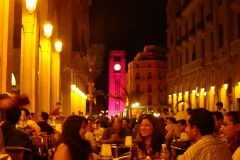 BEIRUT, 6 March (IRIN) – At a glance, Nadine (not her real name) is an innocent, 16 year-old-girl, but a conversation with her soon reveals the shocking details of the hard life she endured as a child. "I didn’t choose to work as a prostitute," she said. "It’s just my luck in life." Explaining how she was raped at the age of nine by a neighbour, and therefore "had nothing to lose" when she accepted money for the first time in exchange for sex with an older man, Nadine blamed her situation on her family’s financial needs.
BEIRUT, 6 March (IRIN) – At a glance, Nadine (not her real name) is an innocent, 16 year-old-girl, but a conversation with her soon reveals the shocking details of the hard life she endured as a child. "I didn’t choose to work as a prostitute," she said. "It’s just my luck in life." Explaining how she was raped at the age of nine by a neighbour, and therefore "had nothing to lose" when she accepted money for the first time in exchange for sex with an older man, Nadine blamed her situation on her family’s financial needs. 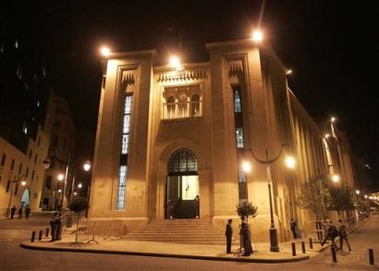 New York, 3 March (AKI) – United Nations secretary general Kofi Annan has welcomed the national dialogue officially initiated by the Lebanese speaker of parliament on issues critical for the country, expressing hope that it will contribute to political stability there. Last month, the UN Security Council said "a broad national dialogue" was needed in Lebanon to make more progress in satisfying its resolution 1559, which called for an end to foreign influence in Lebanon.
New York, 3 March (AKI) – United Nations secretary general Kofi Annan has welcomed the national dialogue officially initiated by the Lebanese speaker of parliament on issues critical for the country, expressing hope that it will contribute to political stability there. Last month, the UN Security Council said "a broad national dialogue" was needed in Lebanon to make more progress in satisfying its resolution 1559, which called for an end to foreign influence in Lebanon.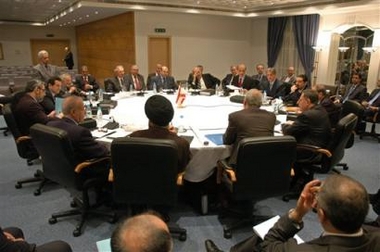 By Alaa Shahine, BEIRUT (Reuters) – Lebanon’s rival politicians met on Thursday for their broadest gathering since the 1975-90 civil war to tackle a political crisis over the role of Syria and its Lebanese allies that has paralyzed the government. The fate of President Emile Lahoud, who is under growing pressure to resign, will be among the most divisive issues on the table at so-called national dialogue talks that are expected to last up to a week.
By Alaa Shahine, BEIRUT (Reuters) – Lebanon’s rival politicians met on Thursday for their broadest gathering since the 1975-90 civil war to tackle a political crisis over the role of Syria and its Lebanese allies that has paralyzed the government. The fate of President Emile Lahoud, who is under growing pressure to resign, will be among the most divisive issues on the table at so-called national dialogue talks that are expected to last up to a week. 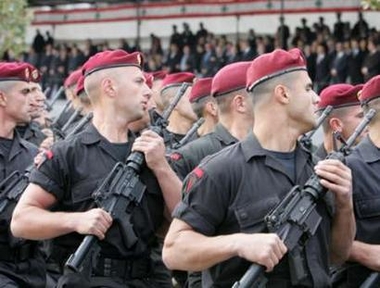 By Christine Spolar, CAIRO — U.S. military officials have been quietly assessing Lebanon’s military capability, making a general inventory of its army, air and naval forces, and suggesting reforms following a request last year from top Lebanese government officials. Brig. Gen. Mark Kimmitt, a top military planner, confirmed the review this week but would not elaborate on recommended reforms. The review was initiated after a request was made directly through the U.S. Embassy in Beirut, military and political sources said, and is part of a continuing process to help democratic forces in Lebanon.
By Christine Spolar, CAIRO — U.S. military officials have been quietly assessing Lebanon’s military capability, making a general inventory of its army, air and naval forces, and suggesting reforms following a request last year from top Lebanese government officials. Brig. Gen. Mark Kimmitt, a top military planner, confirmed the review this week but would not elaborate on recommended reforms. The review was initiated after a request was made directly through the U.S. Embassy in Beirut, military and political sources said, and is part of a continuing process to help democratic forces in Lebanon.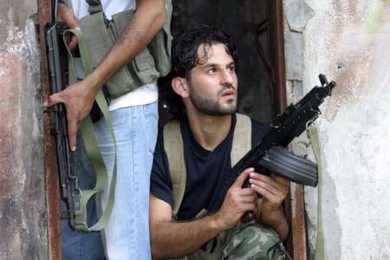 BEIRUT, 1 March (IRIN) – Young Lebanese, Palestinians and Sudanese want tougher gun control regulations, a survey by a group of NGOs revealed. The findings of the study, which was conducted over the last six months by the Middle East North Africa Network on Small Arms (MENSAA), an umbrella group of Arab NGOs concerned with the misuse and proliferation of illicit small arms and light weapons, were released on Tuesday in Beirut.
BEIRUT, 1 March (IRIN) – Young Lebanese, Palestinians and Sudanese want tougher gun control regulations, a survey by a group of NGOs revealed. The findings of the study, which was conducted over the last six months by the Middle East North Africa Network on Small Arms (MENSAA), an umbrella group of Arab NGOs concerned with the misuse and proliferation of illicit small arms and light weapons, were released on Tuesday in Beirut. 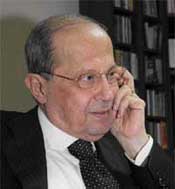 mmorning.com, Will you take part in any action intended to remove the president from office?
mmorning.com, Will you take part in any action intended to remove the president from office?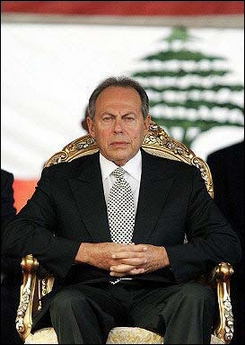 BEIRUT (AFP) – Lebanon’s President Emile Lahoud hit back at his critics in parliament charging that their campaign to oust him was inspired by foreign powers and an affront to the country’s sovereignty. In an unprecedented open letter in the French-language L’Orient-Le Jour newspaper, Lahoud insisted that it was not his allies in Damascus who were in breach of a 2004 UN Security Council resolution demanding respect for Lebanon’s independence, but his critics’ pro-Israeli backers.
BEIRUT (AFP) – Lebanon’s President Emile Lahoud hit back at his critics in parliament charging that their campaign to oust him was inspired by foreign powers and an affront to the country’s sovereignty. In an unprecedented open letter in the French-language L’Orient-Le Jour newspaper, Lahoud insisted that it was not his allies in Damascus who were in breach of a 2004 UN Security Council resolution demanding respect for Lebanon’s independence, but his critics’ pro-Israeli backers.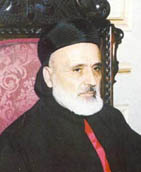 by Youssef Hourany,
by Youssef Hourany, 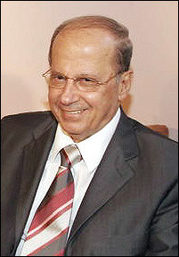 ROME, FEB. 22, 2006 (Zenit.org).- General Michel Aoun, who headed the transition military government in Lebanon from 1988-1990, is optimistic about his homeland. "It is very clear to me that the Lebanon is a message of peaceful coexistence," he said during a visit in Rome. Aoun was visiting the Lebanese community here and attending meetings in the Vatican. ZENIT was able to receive his insights on the Mideast and other topics. After almost 15 years of exile in France, where he founded the multiconfessional Free Patriotic Movement, the Lebanese general returned to his homeland last May 7 to play a leading role again in the future of his country.
ROME, FEB. 22, 2006 (Zenit.org).- General Michel Aoun, who headed the transition military government in Lebanon from 1988-1990, is optimistic about his homeland. "It is very clear to me that the Lebanon is a message of peaceful coexistence," he said during a visit in Rome. Aoun was visiting the Lebanese community here and attending meetings in the Vatican. ZENIT was able to receive his insights on the Mideast and other topics. After almost 15 years of exile in France, where he founded the multiconfessional Free Patriotic Movement, the Lebanese general returned to his homeland last May 7 to play a leading role again in the future of his country. 


